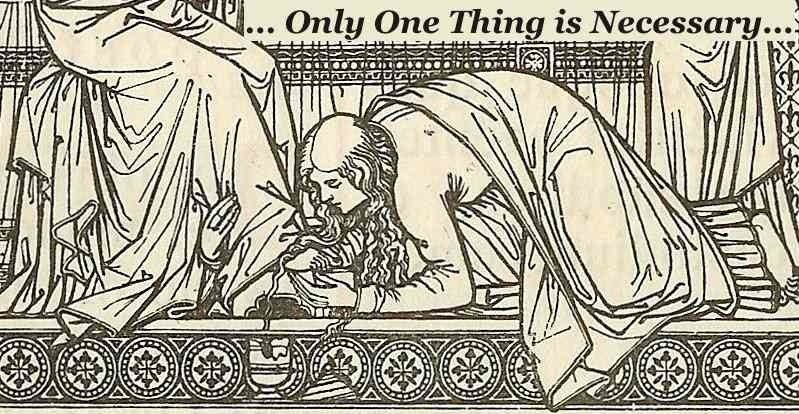These thoughts are in no sequential order or narrative form although they may be variations on some theme.
Today is a day of traveling. During previous trips this was always a tiring ordeal. Flying for me is very stressful, but as I look out the window I can't help but glorify God and the beauty of his creation. The clouds look like rolling waves in a vast sea. As the sun rose, the light reflected off the vapor formations that turned the rolling waves into a sea of fire, like what John describes in Revelation.
Flight allows for such ease and quickness in travel. Imagine what St. Paul or St. Francis Xavier would have accomplished with their missionary zeal and an airplane. It makes me think how far I have to grow in my faith, hope, and charity. We have been offered these great gifts in technology, often times enough their potential for glorifying God is never actualized, as in the present with flight. Granted, due to flight there have arisen missionary orders who send their members to the ends of the earth. Flight also has allowed people to hear first hand great philosophical and theological insights by bridging the gap between the US and Europe.
As I was preparing to travel yesterday I could not help but think of Christ telling the apostles what bring with them as they go out in twos. Certainly society today does not suggest packing so lightly, but nonetheless I had to reflect on what I was bringing with me. Much of the clothes that I am bringing will be left behind to be distributed to those who are in need. My hope is that this charitable donation will actually increase charity within my heart, an increase of which I am always in need. The apostles traveled to the ends of the known world after being stirred at Pentecost, each one proclaiming Christ crucified and risen. All but John shared their master's fate. I do not believe this will be the end of our small trip. We are called to much more discreet martyrdoms. This does highlight though the correlation between mission and martyrdom. They go hand in hand like an old man walking with his wife of 60 years. By appearance alone they look like they belong together. As you get to know them, it seems that one was created specifically and uniquely for the other. I see in mission and martyrdom the same relation. On mission one has to die to his idea of himself, he has to in some degree die to his native culture, the place in which he was born and grew up. He forsakes his homeland for a foreign place and culture all for the sake of the gospel. He must die to the ideologies that might sway his view of the human person or of politics and hold fast to gospel values and the solid foundation of the teaching of the Church. This, in and of itself, is sometimes a greater death than forsaking one's land.
Traveling also provides a time for reflection, for thought, for community. Whether walking or riding or flying there certain times of quiet that naturally occur. They provide the chance to pray or reflect. These are sacred times to be human and bring the physical act of traveling into the spiritual. I left my homeland, where I am comfortable, were my friends and my family are, were in a certain sense my flock is, and I am in Nicaragua a land very different from my own. This is part of the mission ad gentes that the Vatican Council fathers and John Paul Ii speak in the Church documents on mission. Modern travel and technology has it's downsides, though. Because of its speed, we can take for granted the fact that we are traversing so many miles. We can easily lose the breadth of our movement. Travel becomes mundane because distance loses some of its meaning in a global environment. Earlier I spoke of the thought of St Paul having an airplane for his missionary journeys. Instead, he walked and sailed. He was subject to the environment and to the winds. In airplanes, cars, and buses, our inventiveness takes wind and weather more or less out of the picture of travel. We can drive in rain, sleet, or snow and not worry about getting wet or our belongings being degraded.
The last chapter of Luke gives another look at travel. The road to Emmaus can provide multiple reflections with regard to this trip, but I will look at just one right now. The Risen Christ walked with his two disciple as they returned home from Jerusalem. They were unaware of his true identity; he was hidden to them while being present with them. Notice also they traveled in two. One can possibly infer that they traveled together in twos in a previous time maybe as part of the 72 that were sent out by Christ. They might have been on mission previously. Christ walks with them who had gone on mission and lights on fire they're stony hearts that were unable to perceive the depth the Scriptures held in proclaiming Christ and him crucified and risen, which indeed became their mission after Pentecost. In a sense their hearts burn because they wish to continue the mission of the Scriptures and proclaim Christ crucified and risen.

No comments:
Post a Comment